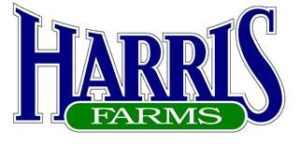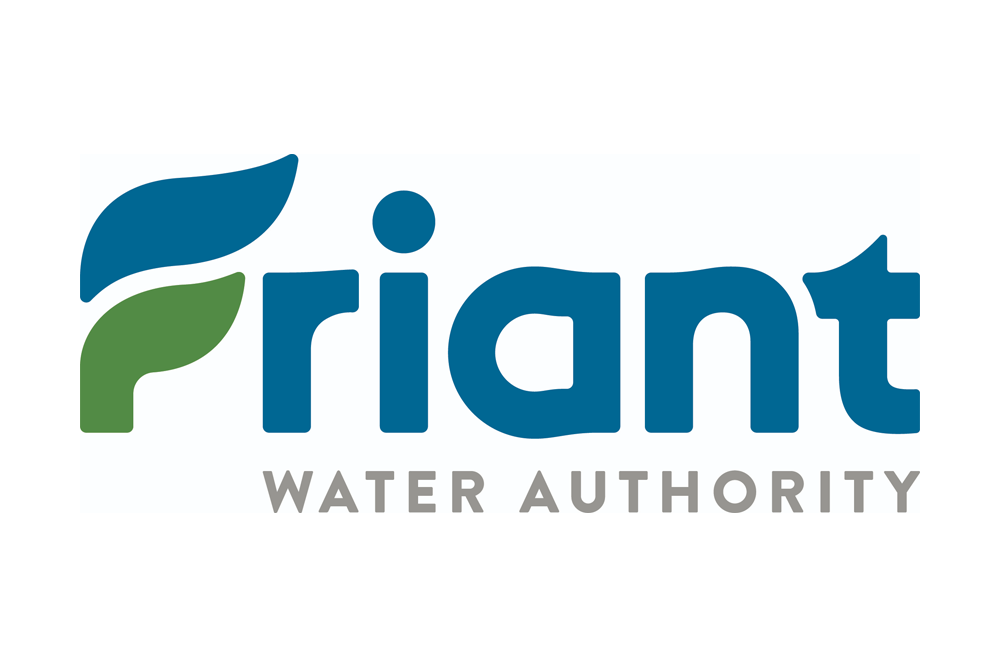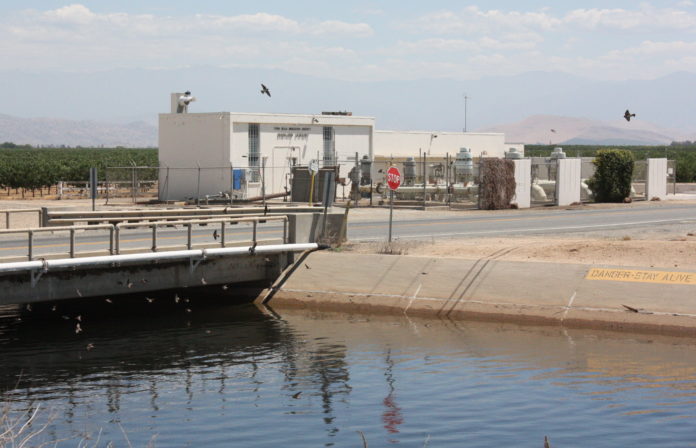 The Friant Water Authority held its executive committee meeting remotely on Monday, June 15, 2020 by WebEx. The public portion of the meeting began at 10:00am with Chairman Chris Tantau calling things to order and announcing there is a quorum and FWA is going to join the lawsuit against the state blocking the biological opinions. There were no public comments and CEO Jason Phillips and attorney Don Davis said Gravely Ford Water District will be welcome to FWA meetings. Don Roberts is the GFWD General Manager and he brings a lot historical and institutional knowledge with him.
The Friant Water Authority held its executive committee meeting remotely on Monday, June 15, 2020 by WebEx. The public portion of the meeting began at 10:00am with Chairman Chris Tantau calling things to order and announcing there is a quorum and FWA is going to join the lawsuit against the state blocking the biological opinions. There were no public comments and CEO Jason Phillips and attorney Don Davis said Gravely Ford Water District will be welcome to FWA meetings. Don Roberts is the GFWD General Manager and he brings a lot historical and institutional knowledge with him.
FWA CFO Don Willard gave his report on the budget review. Things weren’t too bad. Of course the Friant Kern Canal repair bill hovers over everything emitting a sickly yellow pallor of the uncertainty. There is a link to the Chinese communists in all of this. If they would have played nice on the world market there wouldn’t have been the trade war. They pulled a sneak bio attack with this coronavirus and the response to it drained the state coffers. This lack of state financial support has left Friant with a bigger chore in fund raising. I mean this sincerely; they are bravely carrying the project forward through uncertainties and unforeseen obstacles. They are looking at construction contracting options and right of way and all the necessary ingredients to make this repair project a reality.
Willard said but for the repairs the budget hasn’t changes much. I believe Superintendent Chris Hickernell gave his report about budget matters as they relate to the physical operations and maintenance of the canal. I couldn’t get online to see any of the presentations so I’m having to rely on my sense of hearing. Like everyone else Friant has to deal with the smog Nazis and concern itself with emissions and dust. That’s reflected in the type of equipment purchased. Anything with a diesel engine has to meet the ever restricting air quality mandates of the California Air Resources Board. The committee adopted a position to advice the board to accept the draft OM&R budget review.
Next Phillips opened the subject of project construction contracting options. He had a man on the phone who works for the US Bureau of Reclamation’s construction division and has been working in cooperation with FWA on how to structure the contract process for the FKC repairs. Phillips said a project of this size and scope is much bigger than anything FWA has taken on before. I didn’t catch the gentleman’s name – Richard something.
Tantau said staff wasn’t ready to give the committee a recommendation before hearing from Richard Welsh. He’s the Deputy Regional Director. He talked about the joint project between the Tehama Colusa Canal Authority and the USBR. Welsh sees this as a good model to follow. He said no matter who is doing the contracting the bid request procurement process needs to be developed right away. Even the contractors need to have an industry day to find out what the scope and schedule will be so they can develop reasonable bids. He also said there needs to be joint oversight committee.
Welsh also said his staff is excited to take this project on. There is a lot of preplanning on the Bureau’s part as well. He has men on his team with a good deal of experience of procurement. There is type of contract with limited funding; a method to fund a project over the life of the contract that allows the funds to be raised over a longer time span. During the TCCA projects there were engineers involved. Stantec has a similar role in this project. They can be a part of the integrated team working collaboratively that would include the designing engineers, the Bureau and Friant.
Phillips asked if there will be thresholds for further board approval such as an add on cost. Welsh said there will most be change orders but to make things work the best a fast, streamlined ladder of authority should be in place to make decisions. Some decisions such as increased cost may need to go all the way up the ladder to the board level.
Davis said he has a concern with the limited funds contract that could leave FWA vulnerable fiscally. Welsh said the contracting community is familiar with this type of contract. There are provisions within the contact template that protects the contractors from loss due to building slow down resulting from a shortage of funds.
Aaron Fukuda, GM Tulare ID asked how far up the chain does the communication with the construction contractor go to get something to happen. Richard said not that far. At TCCA a piece of rebar the inspector deemed a problem was quickly fixed. He had a much better response than I’m conveying here.
Phillips commented the Bureau’s priority and availability of key personnel is at its peak. He recommended the committee advise the board to lock on now with the Bureau. Davis said another pro to having the Bureau do the procurement would be the permitting would be much easier and quicker. When the Friant Kern Canal was recently relined getting the USBR permitting was a deal in itself. The committee agreed to move this to the board.
Davis then spoke about getting all the easement and right of way needs taken care of. He said there are more than 20-utilities impacted with the FKC repairs. On top of that there are Friant contractors, cities and counties also having to deal with the repairs. He gave an example of So Cal Edison having to move power poles. You don’t want to pop open a gas  line while knocking over a power pole. Davis said Overland Pacific Culter would be a good firm to take over this specialized duty. It will cost $412,000 if I understood and it will come from federal funds, if I understood. The committee will pass this up the line at next week’s board meeting.
line while knocking over a power pole. Davis said Overland Pacific Culter would be a good firm to take over this specialized duty. It will cost $412,000 if I understood and it will come from federal funds, if I understood. The committee will pass this up the line at next week’s board meeting.
Just when you thought things couldn’t get anymore exciting COO Doug DeFlitch, Davis and Willard dove into scheduling and funding. DeFlitch said the reports and studies are moving forward well with the California Department of Fish & Sticks and the Bureau. Things should wrap up in time for the October deadlines to get this completed. Davis said he’s fairly confident comments on the studies will be easily addressed and not bog down. He said Friant is meeting with Tulare County on road bridge crossings and such. He said Tulare County has been working well and working hard.
Funding was addressed by Phillips who said a final record of decision is a motivator to really dial in the cost estimates. That’s how the Office of Budget Management gets its info. He said laugh if you will but cost estimates could even go down. He said staff is tracking WIIN Act funding. There’s a bill coming up next month to release the money. He’s hoping for $70 million in construction funds coming up. He also said an inquiry as to whether or not a district is interested in Zone Three participation is due next month. There will be a workshop this Friday to discuss this about 3pm. I think I heard Phillips said a district has  expressed an interest at a 50 cfs level. That’s the minimum because having a 100 investors for 100 cfs would be impossible to monitor properly. There is a modeling meeting coming up to show what could happen under the different zones being offered. DeFlitch said this meeting is tentatively scheduled for this Friday also.
expressed an interest at a 50 cfs level. That’s the minimum because having a 100 investors for 100 cfs would be impossible to monitor properly. There is a modeling meeting coming up to show what could happen under the different zones being offered. DeFlitch said this meeting is tentatively scheduled for this Friday also.
Fergus Morrissey, GM Orange Cove ID has some specific questions about a couple of assumptions based on cfs. He figured the capital cost of $13,500 per cfs above 2,000 cfs. That’s not carved in stone and DeFlitch said as much. He said Friday’s meeting could clear up some of the costs verses annualized costs.
Phillips said the size of Zone Two is has been sufficient so far at 2,750 cfs but if Class II water becomes available that may not be enough. He added Class I will still have priority no matter the zone. He kind of reiterated DeFlitch that annualizing the costs will make a big difference in stating the value and benefits. Morrissey said his board isn’t in favor of districts paying for increased capacity but he does buy into the annualization benefits.
Sean Geivet, GM Porterville ID asked about the southern districts having to go to a 218 Election to fund their participation. Eric Quinley, GM Delano Earlimart ID said it will be the southern district who are ultimately the backstop. Quinley was pretty supportive of the various funding options. It sounded like that to me anyway. DEID is downstream of the kink in the canal; which I think sounds better than the pinch in the canal.
How does this tie into the Warren Act OM&R charges? FWA has an O&M formula that Phillips said is not quite rocket surgery but close. There is a formula proposed to determine that cost and take into account more variables. The cost is $18 and change per a/f, if I understand correctly. There is a chance this rate could change mid-stream as it were, this summer. Someone from Ellis ID said he was disappointed in already paying O&M fees and then having Warren Act costs tacked on. Warren Act is a process that allows non-CVP water to be conveyed on the FKC. I got lost at that point as it involved water from a privately owned water company and many voices speaking I didn’t recognize.
Phillips said there will have to be a special board meeting to discuss a water quality committee update. This will be Wednesday at 10am on WebEx and will include questions and feedback time.
Johnny Amaral and Mike Villines gave political and legislative activities updates. Amaral said there was some action on the Senate originating from Arizona that got blocked by senate leadership. It would have provided funds for canal repair. Amaral praised Dan Keppen of Family Farm Alliance (a new contributor to WaterWrights.net) and said he gives a great report on land matters.
Villines reported the California budget must be passed today if the elected officials want to get paid. Villines pretty much guaranteed the budget will pass. There will be trailer bills hanging out and recess until August. Amaral said folks are still waiting for the EPA to open applications to receive some funding for canal repairs.
Phillips said FWA has submitted some comments on the Del Puerto Canyon Dam to be cooperative but protect Friant water supplies.
Tantau invited Ian Buck MacLeod to report on CVP water supplies. He said the latest storms did help with the cold water pool up north but not much happened in the San Joaquin watershed. Shasta was declared noncritical on June 8th. He reported on the Airborne Snow Observatory findings and funding. Last year covered the costs by state funds. This year USBR footed the bill but isn’t sure about next year. DWR only have about $500,000 to spend next year due to COVID-19.
MacLeod reported north of Delta storage is average and the X2 line is still being pushed back to sea. The federal Jones plant is pumping at three units at 2,700 cfs. That could go up in July to 4,000 cfs. Exchange Contractors will get 100 percent allocation and south of Delta contractors have had their allocations increased to 20 percent. The State Board didn’t approve the USBR Sacramento River Temperature Management Plan. The State Board requested the Bureau to reduce allocations. The National Marine Fisheries Service likes the plan. He said the legal battle over biops continues.
Tantau asked MacLeod about dewatering the canal in the fall is all set. MacLeod said yes.
Austin Ewell reported on the San Joaquin Valley Water Blueprint saying State Senator Melissa Hurtado released an op ed that appeared in the Fresno Bee and it was very favorable to Friant Kern Canal repairs. Fresno State University, Self Help, Leadership Council and others are working on a study to help get drinking water to communities in the Friant area. If I heard him correctly even the State Board has gotten interested.
Phillips his report saying the next board meeting will be meeting at the Visalia Convention Center and will be for directors, managers and Friant staff only with WebEx available for all others. The annual meeting has been cancelled. Probably go back to Pismo. He said Friant has been sending out comment letters to GSAs about subsidence. And that was that in just under three hours.
DISCLAIMER OF RESPONSIBILITY; Waterwrights strives to provide it’s clients with the  most complete, up-to-date, and accurate information available. Nevertheless, Waterwrights does not serve as a guarantor of the accuracy or completeness of the information provided, and specifically disclaims any and all responsibility for information that is not accurate, up-to-date, or complete. Waterwrights’ clients therefore rely on the accuracy, completeness and timeliness of information from Waterwrights entirely at their own risk. The opinions expressed in this report are those of the author and do not represent any advertisers or third parties.
most complete, up-to-date, and accurate information available. Nevertheless, Waterwrights does not serve as a guarantor of the accuracy or completeness of the information provided, and specifically disclaims any and all responsibility for information that is not accurate, up-to-date, or complete. Waterwrights’ clients therefore rely on the accuracy, completeness and timeliness of information from Waterwrights entirely at their own risk. The opinions expressed in this report are those of the author and do not represent any advertisers or third parties.
ALL RIGHTS RESERVED. Copyright 2020 by Don A. Wright
FRIANT WATER AUTHORITY
854 N. Harvard Ave., Lindsay, CA 93247, Office 559/562-6305 Email: information@friantwater.org www.friantwater.org
The Friant Water Authority is a Joint Powers Agreement with 15 districts to operate and maintain the Friant Division of the Central Valley Water Project. Water from the San Joaquin River is diverted at Friant Dam at Millerton Lake to the Madera/Chowchilla Canal to the north and the Friant/Kern Canal to the south. More than one million acres of mostly family farms and numerous communities get their surface supplies form the Friant Division.
Staff: CEO Jason Phillips, COO Doug DeFlitch, CFO Don Willard, Government Affairs & Communication Alexandra Biering, Water Resource Manager Ian Buck-Macleod, Superintendent Chris Hickernell and Attorney Don Davis.


































